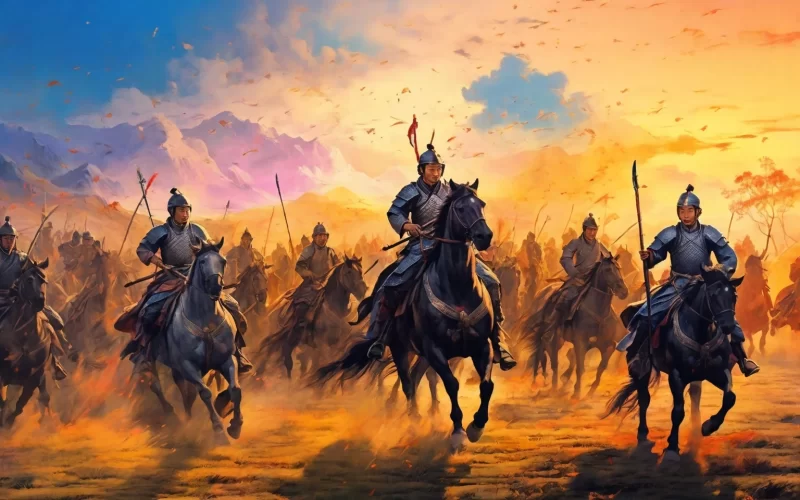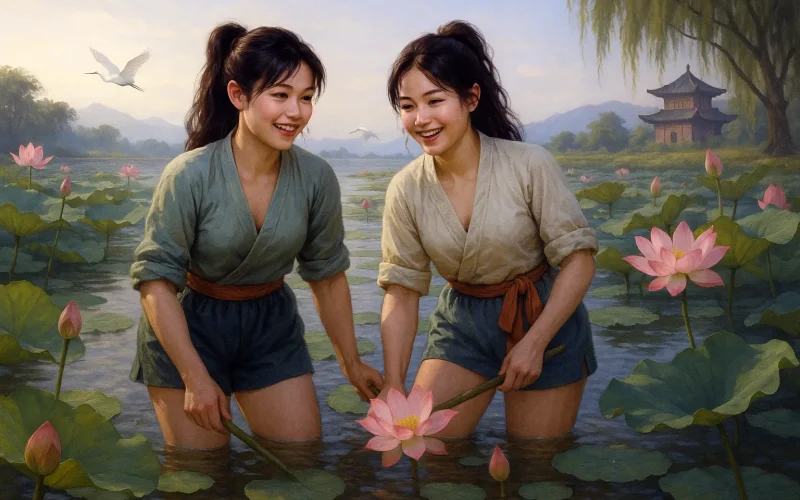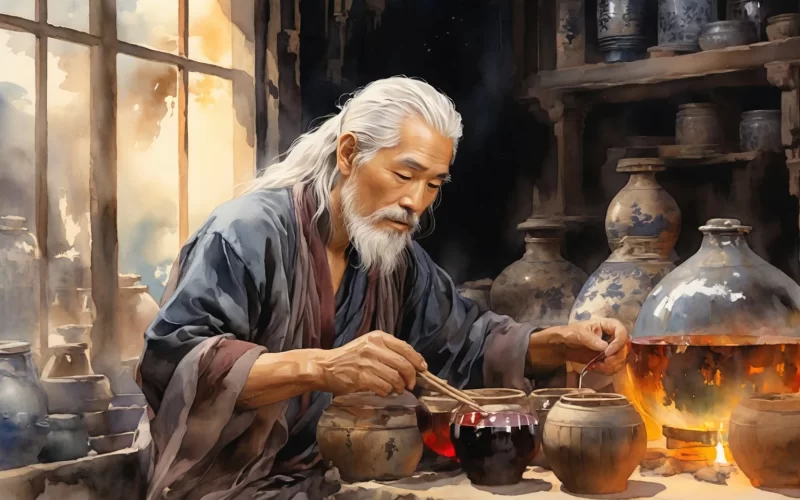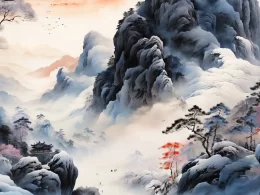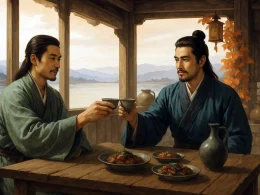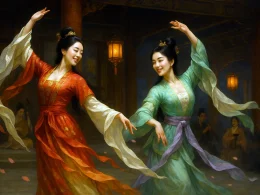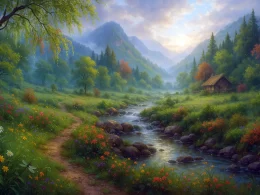We fought last year by the source of the Stream;
We fight this year on the Onion Stream’s way.
We’ve washed our armor in the Indian Sea;
We’ve pastured our horse on the Snowy Range.
Thousands of miles we’ve marched in war;
Our three armies have grown old.
The Huns make slaughter their trade;
The fields have witnessed white bones for long.
The Qin built the Wall against the Tartar foe;
The Han still see the beacon fires glow.
The beacon fires have never burned out;
Warfare has never come to an end.
On the battlefield men grapple and die;
The horses of the vanquished neigh to the sky.
Crows and kites peck at human guts,
Carry them in their beaks and hang them on the branches.
Men’s blood stains the grass and the trees;
The generals have done nothing in vain.
Know that arms are evil things;
The wise prince uses them only if he must.
Original Poem
「战城南」
李白
去年战,桑干源;今年战,葱河道。
洗兵条支海上波,放马天山雪中草。
万里长征战,三军尽衰老。
匈奴以杀戮为耕作,古来惟见白骨黄沙田。
秦家筑城备胡处,汉家还有烽火燃。
烽火燃不息,征战无已时。
野战格斗死,败马号鸣向天悲。
乌鸢啄人肠,衔飞上挂枯树枝。
士卒涂草莽,将军空尔为。
乃知兵者是凶器,圣人不得已而用之。
Interpretation
This work represents Li Bai's creative reinterpretation of the old Yuefu ballad "Fighting South of the City," directing its critique toward the frequent frontier campaigns launched during Emperor Xuanzong's Kaiyuan and Tianbao eras. With shocking vividness, Li Bai breaks from the traditional frontier poem's singular tone of heroism or tragedy, employing near-naturalistic brutality and profound historical insight to fundamentally negate war itself, making this one of ancient Chinese poetry's most powerful anti-war declarations.
First Stanza: "去年战,桑干源;今年战,葱河道。洗兵条支海上波,放马天山雪中草。万里长征战,三军尽衰老。"
Qùnián zhàn, Sānggān yuán; jīnnián zhàn, Cōnghé dào. Xǐbīng Tiáozhī hǎi shàng bō, fàngmǎ Tiānshān xuě zhōng cǎo. Wànlǐ chángzhēng zhàn, sānjūn jìn shuāilǎo.
Last year we fought at Sanggan's source; This year, war along the Onion River road. Washed weapons in the waves off Tiaozi; Grazed horses on Tianshan's snowy grass. A thousand-mile campaign, and the entire army grows old.
The poet opens with an annalist's cold tone. The juxtaposition of "last year" and "this year" reveals endless warfare. The four extreme geographical names—Sanggan, Onion River, Tiaozi Sea, Tianshan Snow—sketch a shocking map of campaigns, emphasizing the war's vast scope and harsh conditions. "Washed weapons" and "grazed horses" appear epic but carry deep sorrow—so-called feats are paid for with soldiers' youth and lives. The concluding line, "the entire army grows old," is the inevitable result, lamenting not just physical depletion but the extinction of spirit and hope.
Second Stanza: "匈奴以杀戮为耕作,古来惟见白骨黄沙田。秦家筑城备胡处,汉家还有烽火燃。"
Xiōngnú yǐ shālù wéi gēngzuò, gǔlái wéi jiàn báigǔ huángshā tián. Qín jiā zhù chéng bèi hú chù, Hàn jiā hái yǒu fēnghuǒ rán.
The Xiongnu take slaughter as their farming; Since ancient times, only bones bleach yellow-sand fields. Where Qin built walls to guard against the tribes, Han's beacon fires still burn.
The poet shifts perspective from the present to historical depth. He first dispels romanticized notions of "barbarians" by describing their harsh survival codes—not to incite hatred, but to pave the way forthe next point: whether on the offensive or defensive, the ultimate cost remains "bones bleaching in yellow sand." Then, using iconic historical images of "Qin's walls" and "Han's beacon fires," he constructs a despairing temporal cycle. The great defensive wall never brought lasting peace, but merely solidified conflict, demonstrating the perpetual nature of violence and confrontation. This reflects profound meditation on the root causes of war.
Third Stanza: "烽火燃不息,征战无已时。野战格斗死,败马号鸣向天悲。乌鸢啄人肠,衔飞上挂枯树枝。士卒涂草莽,将军空尔为。乃知兵者是凶器,圣人不得已而用之。"
Fēnghuǒ rán bù xī, zhēngzhàn wú yǐ shí. Yězhàn gé dòu sǐ, bài mǎ háo míng xiàng tiān bēi. Wū yuān zhuó rén cháng, xián fēi shàng guà kū shù zhī. Shìzú tú cǎomǎng, jiāngjūn kōng ěr wéi. Nǎi zhī bīng zhě shì xiōngqì, shèngrén bùdé yǐ ér yòng zhī.
Beacon fires never cease, warfare never ends. Died in wilderness combat, riderless horses mourn to the sky. Ravens pluck men's guts, fly and hang them on dead branches. Soldiers' blood stains the weeds, generals' efforts come to naught. Thus I know arms are tools of evil, the sage uses them only as last resort.
This stanza is the poem's climax and one of the most brutal battlefield depictions in Chinese poetry. With unflinching strokes, the poet presents a hellish scene: the horses' mournful cries are an emotional tear, while "ravens pluck men's guts, hang them on dead branches" is the visual horror peak, pushing war's savagery and inhumanity to the extreme. Before such immense sacrifice ("soldiers' blood stains the weeds"), any military achievement ("generals' efforts come to naught") seems vain and despicable. Finally, the poet quotes Laozi's philosophy: "arms are tools of evil, the sage uses them only as last resort." This is not mere allusion but direct critique of imperial militarism—how many current wars are truly "last resort"? This final argument resonates like a great bell, awakening the deaf.
Holistic Appreciation
This tightly structured, passionately anti-war polemic progresses logically through three phases: phenomenological description, historical tracing, and essential critique. Through vast spatial expansion (thousand-mile campaigns) and endless temporal repetition (Qin-Han beacon fires), Li Bai constructs an inescapable prison of warfare. Employing extreme visual imagery (white bones, ravens) and auditory atmosphere (horses' mourning), he evokes not only pity and terror but also shatters any romantic or heroic war narrative. Ultimately, his critique targets war decision-makers, asserting that most conflicts violate the ancient principle of "last resort." The poem's enduring value lies in its timeless clarity and moral courage.
Artistic Merits
- Creative Transformation of Yuefu Conventions: Li Bai inherits the old Yuefu's "response to sorrow and joy, arising from events" realist spirit but injects stronger personal critique and grander artistic imagination, revitalizing the old form with new intellectual light.
- Grand Narrative Interweaving Time and Space: The poem moves freely across time and space—from last year's Sanggan to this year's Onion River, from the distant Tiaozi Sea to historical Qin walls and Han beacons—constructing a vast tragic stage across eras, revealing war as a chronic illness of human history.
- Startling Fusion of Realism and Romanticism: The battlefield depictions are highly realistic, even naturalistic, yet their extreme presentation (e.g., "ravens pluck men's guts") achieves a terrifying, expressionist-like romanticism, producing powerful artistic shock.
- Seamless Blending of Description and Argument: After dense descriptions of horror, the poem naturally introduces the judgment "generals' efforts come to naught" and the philosophy "arms are tools of evil," making the argument not empty dogma but an inevitable conclusion based on bloody facts, flowing seamlessly with penetrating force.
Insights
The poem's insights are profound and multifaceted. Firstly, it thoroughly demystifies any form of war fervor, reminding us to remain vigilant aboutthe individual suffering and life costs often masked by grand narratives. Secondly, it reveals history's inertia—the horror of violent cycles and the difficulty of breaking them—urging us to consider how to establish a peaceful order beyond confrontation. Finally, the Laozi concept Li Bai references—"the sage employs arms only as a last resort"—remains the highest wisdom and moral baseline for handling international disputes today. It cautions that we must maintain the deepest reverence and utmost caution toward the use of force; any act of rashly initiating warfare betrays civilization itself.
About the poet

Li Bai (李白), 701 - 762 A.D., whose ancestral home was in Gansu, was preceded by Li Guang, a general of the Han Dynasty. Tang poetry is one of the brightest constellations in the history of Chinese literature, and one of the brightest stars is Li Bai.






